
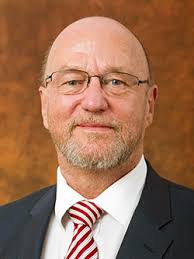
Transcript: SA Tourism Minister Derek Hanekom at the IGLTA Annual Global Convention
The Tourism minister from South Africa Derek Hanekom today addressed the IGLTA Annual Global conference in Capetwon on his stand on Gay, Lesbian, Bisexual and Transgender travel.
TRANSCRIPT: It is a great honour for me to welcome you to the first International Gay and Lesbian Travel Association Convention in Africa (IGLTA). We are extremely proud that you have chosen South Africa for this ground-breaking event.
Welcome to the making of the South African success story. Many of the early chapters of this story are completed, some are still being written, and people like yourselves, who come here from all over the world, are helping us write future chapters about the success of tourism in our country.
I really hope you have built in time to enjoy some of our amazing attractions and offerings: from the best of leisure and adventure, to the stories behind our culture and heritage, to our beautiful landscapes and our warm and wonderful people.
When you visit our iconic sites like Robben Island, you will understand how far we have travelled on our journey to success in the past two decades, how much we have learnt from our oppressive past, and how much we value our freedom and our human rights – rights which many of you here have had to fight long battles to secure, and quite possibly have not yet secured.
This convention will help brand South Africa as a country that welcomes LGBT travellers. The tourism trade network, and travellers, will appreciate all that we have to offer, especially our wildlife, cultural and gastronomic experiences. I am sure that you will also take the bigger story of South Africa, our achievements and advancements beyond tourism, to the wider world when you return home.
Many of you may know that when South Africa first became a democratic state, we were a society perched on the brink of catastrophe. More than three hundred years of repression preceded those momentous days which led to the unbanning of political organisations; the release of political prisoners and the re-shaping of what was an entirely repressive society, into one which cared for its people – one which recognised the dignity of each and every human being, no matter what their race, ethnicity, or standing in society, marital status, disability, gender or sexual orientation might be.
It was a long road to a democratic, caring society. And the change could not happen overnight. It could not, because that is not how human beings work. Change comes slowly. As the English poet WB Yeats once said “peace comes dropping slow”. To change from systematic violence and exploitation to a land where every citizen would be valued and cared for; to change from a land with a racially defined privileged few, to one where the people would share the wealth and opportunity of the country – this could not be anything other than a slow process. When we look back at the 22 years since we achieved our freedom, we have made huge advances, but the journey towards a non-racial, non-sexist society, free of stereotype and prejudice has only really just started.
At that exciting time of the transition from Apartheid to democracy, one of the great icons of our liberation struggle, Archbishop Desmond Tutu, coined the phrase “Rainbow Nation”. It was poetry, and just the right medicine for our divided nation. What he meant by that was that the beauty and wonder of the rainbow lies in nothing other than its many different colours. So he used it as a metaphor for our country. Many colours, but one nation. It worked for us and played a very important part in making people recognise the beauty of our racial and cultural diversity.
As time progressed, we began the real work of addressing inequalities and confronting persistent racism, sexism, homophobia and other forms of prejudice, sometimes in ugly ways. Student protests of the past year have brought all of this into very sharp relief. Much of what was previously just accepted as part of our national life, has been brought into question, analysed and sometimes seriously challenged.
Perhaps we are now better described as a “Kaleidoscope Nation” – where things are constantly changing and shifting, and sometimes even colliding. But the beauty is all still there. The different colours are still wondrous. The shape and form of our nation shifts continuously, but it is up to us to define the dream, and to shape it.
I have no doubt that our shared dream is of a world where you can love who you choose to love, without fear or embarrassment; where the colour of your skin does not matter; where you can worship in your way, or not worship, if that is your choice. A world where our sameness is more important than our differentness – where you can be you and I can be me and we care for each other.
We became the first country in the world to include a sexual orientation protection clause in our Constitution to ensure the rights of all people. Consequently, LGBT people took pride of place as full and equal members of our society. It filled many of us with immense pride, but it was a hard battle and there was considerable opposition to it from some quarters.
These rights are now firmly included in our Constitution, because they belong there and because it is right for them to be there. We recognise that we have not yet reached our destination. We are still on the journey and we still have a very long way to go.
So, as much as I would like to, I cannot promise you that wherever you go in South Africa, as LGBT people, that you will be accepted by everyone. What I can promise you is that you will experience a warmth and a depth of human belonging that you are unlikely to find anywhere else on the planet. I can’t promise you that you won’t experience prejudice, or racism, or sexism or homophobia. But what I can promise you is that you will be treated respectfully as a fellow traveller on this, our human journey.
What I can say without any shadow of a doubt is that, as a country, we need you and want you here. Not because of who we are, but because of who you are. Because of the struggles you have faced. Because of the brave (or even the ordinary) lives that you lead. We need you because you bring experience and challenge into our lives – and we have never been afraid of either. We need you because, in many instances, you bring a new way of looking at things – a new and exciting way of living which has always been part of our South African life, but frequently ignored, or disparaged, or violently rejected. We want you here to be a light to the millions of LGBT people in our country, so that wherever they are, they might know that they are not alone – that they are quite normal and that they should live their lives unafraid. For that is the kind of country we are trying to build.
We have a concept here, which is part of the reason why we did not destroy each other. It is a concept called “Ubuntu” and it is embedded in the soil and it lives in the heart of every South African. It is this: we are who we are, because of others. It is an affirmation that I am a person, because of other persons. I can promise you that you will experience it!
And that is the reason why we included that clause in our Constitution. Because we cannot be whole, if another person is excluded. It is a wonderful thing indeed.
We are fortunate to have the most amazing and unique World Heritage Sites in our country. Here in the Western Cape, you can enjoy the glory of the Cape Floral protected areas, which boasts the greatest floral diversity on the planet. Robben Island stands as testimony to our troubled and divided past – but also as a beacon of hope, courage and resilience – paving the way to democracy in 1994.
We go back to the beginning of time, when a meteor hit the earth at Vredefort and brought about some of the most important climate changes the world has known, until now. We have the iSimangaliso Wetland Park and the majesty of the Maloti-Drakensberg Park, in KwaZulu-Natal; we have the Richtersveld Cultural and botanical landscape in the Northern Cape. And perhaps, most importantly, the place where the umbilical cord of our collective ancestors lies buried, with the astonishing Hominid fossil finds of the Cradle of Humankind World Heritage Site in Gauteng.
It is because of this, our common humanity, that we can open our arms to you and welcome you to our shores. For you are at home! This is the place we all come from. Whether you are Lesbian, or Gay, or Bisexual, black or white or any shade of colour, this incredible continent of Africa is your home. This is where we all come from, whatever journey we have travelled and wherever we find ourselves today.
This continent is our collective home. Let us celebrate our belonging to the family of humankind, and let us rejoice that I am who I am through you. And you are who you are, because of others. Let us celebrate this wonderful thing called “Ubuntu”.
And so, on behalf of the people of South Africa, I welcome you. I cherish you. I value you. I look for the things you can teach me about being human. With you, I long for the day when we are all one, whatever our race, or gender, or sexual orientation.
Let us walk the next steps together on this wonderful and exciting journey.
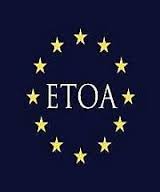
European commission proposes suspension of Schengen visa wavers for US and Canadian visitors
ETOA issued this informative in regards to the attempt by the EU to require tourist and business Visas for Americans and Canadians:
WorldTourismWire reached out to German tourism officials in New York, but they do not yet want to comment.
Off the record comments by several EU tourism boards voiced concerns.
The European Commission today adopted a political Communication on the state of play and way forward as regards the situation of non-reciprocity with certain third countries in the area of visa policy. As the US requires visas from citizens of Bulgaria, Croatia, Cyprus, Poland and Romania, the Commission is obliged to pursue a reciprocal regime on US citizens entering Europe. As of the 12th of April, it has duly asked the Council of Ministers and the European Parliament to consider suspending the Schengen visa waivers for visitors from the US, as well as Canada.
This has occurred almost automatically. The Commission has to regard the rights of EU citizens as equal, and the selection of some member states for visa requirements is regarded as anathema. So 24 months ago it issued a formal notice to the US State department asking for a reconsideration of their position with regards to the five member states, and that notice period has now expired, so they had to forward the issue onto the Council and Parliament.
This matter comes at a moment when European cohesion – and its borderless travel zone – is under some stress. Austria has just introduced a “border management plan” at the Brenner pass, and spot checks are occurring at or near frontiers throughout Europe.
“Whilst we have every sympathy with the Commission, they are victims of their own process. It is important that the European economy does not become a victim too. The business of accommodating US and Canadian visitors is an enormously important industry for Europe. We effectively sell them services worth approximately €50 billion: it is an export industry on the same level as the automotive sector. Millions of jobs are dependent on it.
Nothing on this scale has been threatened before, so it is difficult to make estimates. But when a visa regime is imposed we would expect leisure travel (which, including visiting friends and relatives) makes up over 80% of this total, to suffer a fall in magnitude of roughly 30%.
Mario Bodini, Chairman of ETOA, said “There should be reciprocity, but is not a €15 billion and 600,000 jobs problem. And reciprocity is a principal widely ignored in visa circles: Europeans enjoy far more freedom to travel around the world than the world enjoys coming to Europe.
Mercifully both the Council and the European Parliament have to take into consideration the economic impact and the practicalities of any move. And the practicalities are overwhelming. Even if the numbers were to drop, it would leave the main Schengen entry countries with a 10 million visa processing task. That alone should sink this idea.”
Tom Jenkins, CEO of ETOA added, “The US and Canada are two of our most important and longstanding origin markets. At a time of difficulty for the tourism industry in Europe, this does not project the necessary welcome.”
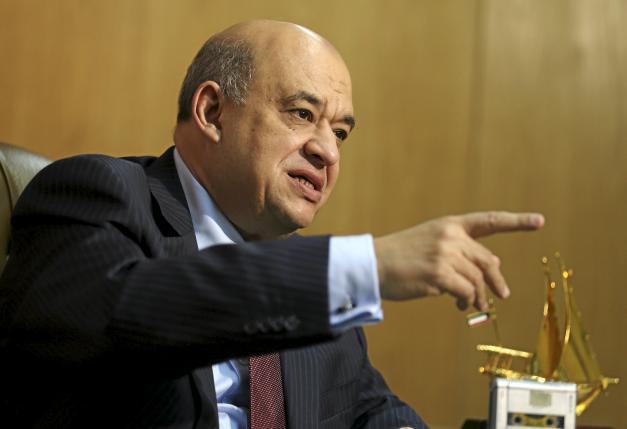
Egyptian Tourism Minister: Working with international tourism partners to restore success
The new Egyptian Minister of Tourism, His Excellency Yehia Rashed, today announced his plan – the ‘6×6 Tourism Impact Plan’ – to fundamentally enhance Egyptian tourism and to revive the fortunes of the critical tourism sector.
Minister Rashed’s ‘Tourism Impact Plan’ focuses on 6 main priorities to improve Egyptian tourism and is designed to deliver real and impactful results within 6 months. The six themes are:
- A New Partnership: Working with international tourism partners to restore success
- Bring the World to Egypt: Working in partnership with Egypt’s national carrier, EgyptAir, to develop new destinations, and to support charter and low cost airline companies in bringing more tourists to Egypt
- Innovation and Investment: Enhance Egypt’s tourism infrastructure by supporting investors and innovating with new ideas
- Raise the Bar: Meet the highest international standards through upgraded product and service levels at tourist facilities
- Attract International Investment: Working to bring foreign direct investment to Egyptian tourism
- A Future in Green Tourism: Develop the growing trend in Egyptian tourism of sustainable eco-friendly accommodation, transportation, and activities
Announcing the 6×6 Impact Plan, Minister Rashed commented:
“My one and only goal is to bring huge numbers of tourists back to Egypt. To do this we need concerted action and partnership with Egyptian and international tourism stakeholders. The 6×6 Tourism Impact Plan is all about action that brings together the priority areas of Egyptian tourism, providing support and enhancements as we move forward.
The commitment to see these 6 priority areas have an impact over a 6 month time frame is very ambitious. But I am also ambitious for our tourism sector. I want to see positive action and for that action to have an immediate impact. 6×6 allows us to focus our energies on the most important elements.
This is the start of an exciting time and opportunity for Egyptian tourism. This will return Egypt to being one of the most sought after places to visit in the world.”
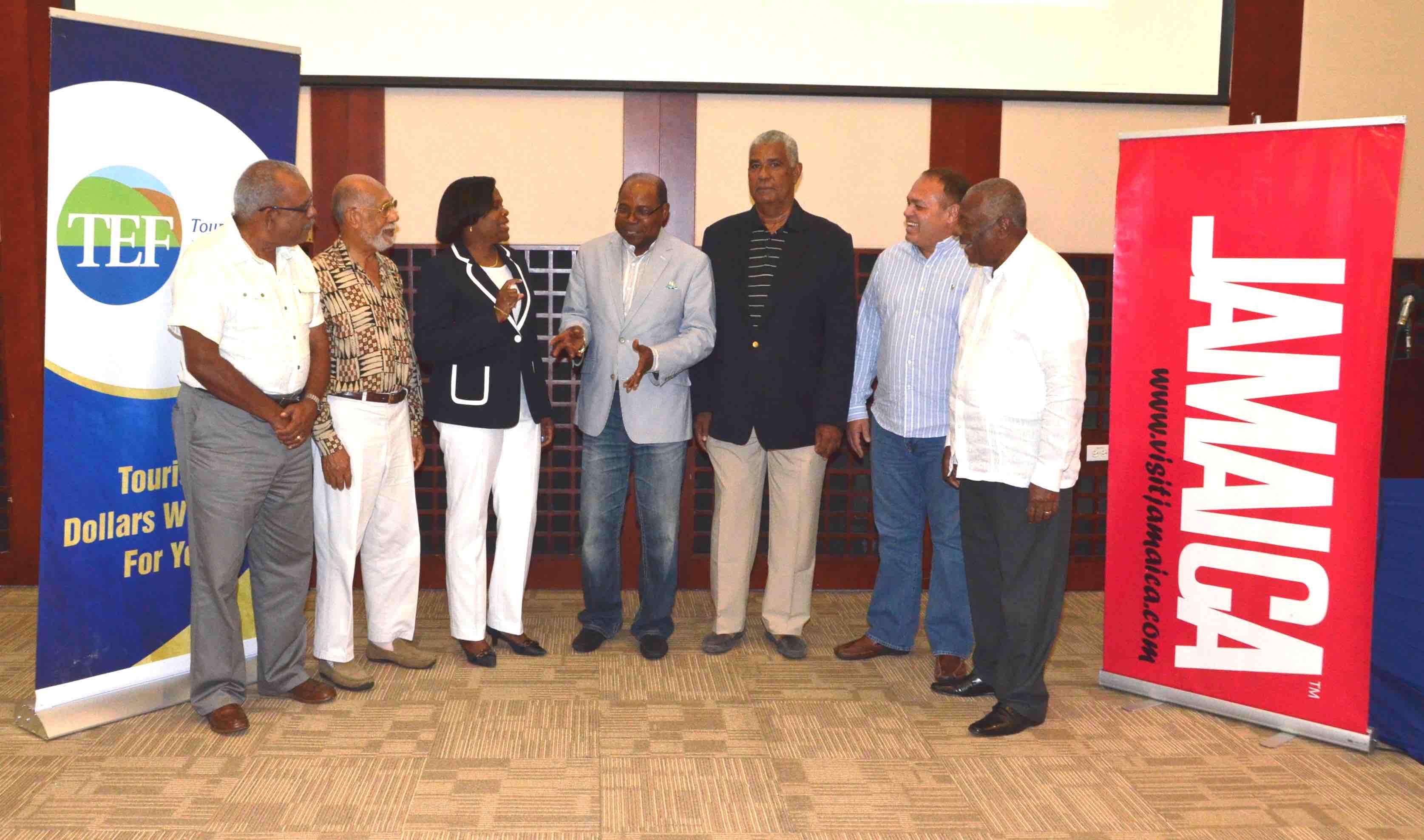
Jamaica Tourism Minister Bartlett Lays out Five Pillars for Tourism Growth
Jamaica Minister of Tourism, Hon. Edmund Bartlett has outlined to the new boards of directors of key agencies in the ministry, five pillars on which the Ministry and its agencies will seek to transform the island’s vibrant tourism sector and achieve double digit growth.
The pillars were outlined yesterday (April 9) during a seminar at the Montego Bay Convention Centre for all board members, to inform them of their roles as directors of their respective agencies. In attendance were chairmen and board members of the Jamaica Tourist Board (JTB), the Tourism Enhancement Fund (TEF), Tourism Product Development Company (TPDCo), Jamaica Vacations Limited (JAMVAC) and Devon House Development Company.
The five pillars include tapping into new markets, developing new products, promoting investment, building new partnerships and the renewal of human capital.
With sights set on pulling in more than US$3 billion from the US$7.2 trillion global tourism market, Minister Bartlett said “we’re going to go to new markets but we have to be careful about that.” He explained that “our existing key market is still not giving us the full returns that we want.”
The United States is being targeted alongside Canada for increased market share. Minister Bartlett was resolute that, “there’s so much more to get from the United States,and we’re gonna get it.” Already, he said an additional flight has been secured out of Vancouver, Canada for the winter.
The thrust will also seek to grow the UK market which has been recovering from a slump due to a recession. “We’re going to grow further because during the period we acquired new partners which put us in a position where we are able now to benefit from the growth curve that is taking place in that economy,” said Minister Bartlett.
The Caribbean and Asia, in particular China have also been prioritized and Mr. Bartlett stressed that Cuba was strategically positioned to help in the growth of tourism in the Caribbean which would augur well for Jamaica. The interest in Cuba he says should play a key role in enabling the region to secure better airlift arrangements with airlines and facilitate multi-destination marketing in the region.
Regarding investments and partnerships, Minister Bartlett told the board directors that while foreign direct investment would be pursued to build large hotels, there will also be heavy focus on convincing Jamaicans to invest in the industry. This, he said, could be achieved by providing services, developing attractions and transforming small hotels and private homes to meet the needs of special needs travellers and other groups.
He said based upon survey feedback, Jamaica is most recognized for its food, music and love and these ingredients will be woven into the marketing strategy to attract more tourists to the island.
Elaborating on the renewal of human capital, the tourism minister said service was a key element “so we must train our workers and we’re going to build out in this dispensation the hospitality school that we’ve been talking about.”
He also disclosed that, “we’re going to build out the capacity of our artisans to produce goods of a wide variety with strong creative output.” To achieve this, “an institute of craft is going to be developed to enable us to have goods made in Jamaica, sold by Jamaicans and to carry the value of Jamaica to the four corners of the world.”
Concurrently, he said three artisan villages will be constructed, one in Ocho Rios transforming the old Reynolds Pier, another in the Freeport next to the Montego Bay Cruise Pier and replacing the existing craft market in the heart of the city, and the third in Falmouth by the old wharf building. Mr. Bartlett said these were being sited “to allow for our artisans and our craft merchandizers to be right where the ship is so that there is no argument again of people bypassing them.”
Additionally, he said “that will also create space for development and the renewal of downtown Montego Bay.”
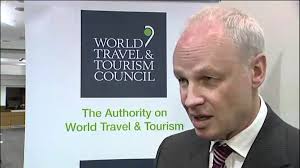
David Scowsill Opening Speech at the WTTC Global Summit 2016
This is a transcript of David Scowsill Opening Speech at the WTTC Global Summit 2016:
Secretary Pritzker, Your Excellencies, distinguished guests, ladies and gentlemen. Welcome to Dallas. And welcome back to the United States for the first time since we were in Las Vegas in 2011. That gathering was instrumental in providing the international perspective on the post 9/11 Travel & Tourism landscape in this country. The “lost decade” of economic growth. The visitors who didn’t visit. The jobs which weren’t created. The 600 billion dollars lost to the US economy in 10 years. The Global Summit in Vegas represented a tipping point. The culmination of years of effort by CEOs in this room, supported at the right time by global pressure to produce a big impact. This was public private sector cooperation at its best. Within 12 months, Brand USA became fully active and the National Travel & Tourism Strategy had been created. President Barack Obama signed the Executive Order, announcing new initiatives to significantly increase the numbers of visitors coming to the United States.
Since these changes, the US has received some $30bil extra in international tourist receipts. I remember watching his address. The tone was different. The words were different. He had got the message. He understood. What the President did not say is that the US is the world’s largest Travel & Tourism economy, contributing a total of 1.4 trillion dollars and 13.5 million jobs. It far outstrips the size of China, Germany, Japan and every single G20 country. The world needs a prosperous US Travel & Tourism sector, for it accounts for one in every five dollars created by our sector worldwide. And as the country came out of the worst recession since the Great Depression of the 1930s, the economic contribution from the additional visitors generated more jobs, more investment, and more visitor dollars. So we are back in the United States to explore how we look up beyond our usual operating horizons to Travel Beyond Boundaries. Another global financial crisis is on the horizon. Negative interest rates. Plunging commodity prices. Unimaginably low oil prices. The risk of sovereign debt defaults. Deflationary forces. Competitive monetary policy. The slow down in China.
But look how we can thrive on disruption. We gather here in Dallas to touch the foundation stone of the global low-cost airline industry. Less than 10 miles from here Southwest Airlines moved beyond tried and tested business models, and provided the blueprint for great low-cost travel. And new boundaries are being pushed with the rapid rise of the sharing economy. Social media. Digital disruption. Less than ten years after being founded, Airbnb is valued at 25 billion dollars – or about the same as Starwood and Intercontinental Hotels group combined – yet it doesn’t own a single hotel room. Uber is valued at around 60 billion dollars, even before it moves into deliveries – yet it does not own a single car. Both of these businesses are disrupting the status quo, driven by great product, technology, consumer need and convenience. In the realms of science and technology we reach out beyond any understanding of our ancestors, to embrace a new era of robotics and automation. We live in an ever-connected world, brought closer by technology, multi platform media, binding trade agreements and the sheer speed of travel.
That same connectivity sees us witnessing the migration of peoples, on a scale not seen for decades. Navigating our way through and beyond the complexities of mass migration, embracing the possibilities while acknowledging the concerns, will be the urgent task of our global leaders now and in the years ahead. And boundaries are being breached in new arenas of combat. In our data dependent world, new battlegrounds are being drawn up. Strategies on security and data protection are being redefined. Cyber terrorism is the new theatre of war. Yet even cyber terrorism is shaded by the dark random brutalities of physical terrorism: from Paris to Palmyra – from Cairo to California. We have to prevent an over-reaction from governments, who are wrestling with the question: “how can we keep our borders safe, while keeping those same borders open to travellers and tourists?” We addressed this topic yesterday in a Ministerial Dialogue with some of our Members, laying out a blueprint for how we can work together to stop the borders being closed. We call upon the world’s leaders to improve radically international intelligence and security agency cooperation. Many attacks are perpetrated by home grown terrorists. Closing our borders and jeopardising our freedom to travel is not the solution. Such political, social, and economic shifts undoubtedly give us enormous challenges, but they also offer up extraordinary opportunities.
To harness our industry to this changing world. To influence it. To define it. To break boundaries. For the world needs a thriving, prosperous Travel & Tourism sector. Globally, this sector contributes $7.2 trillion annually, almost 10% of the world’s GDP, and supports one in eleven of all jobs on the planet. We account for 6% of all exports and 4% of all investment. But beyond economic arguments, there is the human side. Travel and Tourism brings people together. It puts a smile on people’s faces. It alleviates poverty. It provides employment across all levels of society, and in some of the most remote places on earth. It broadens horizons and breaks boundaries. Travel & Tourism truly is a force for good in the world. So, what’s stopping us? What are the barriers to our ambition? Some of these boundaries are very familiar to WTTC: our fight for Freedom to Travel in a safe and secure environment.
Our mandate to ensure that taxation is applied intelligently. Our struggle for the right infrastructure. Our focus to get the best talent into our businesses. For these are critical issues, which drive our work to maximise the long-term sustainable growth of the sector. Our relationship with UNWTO is the best example of public and private sector partnership, speaking with ‘One Voice’ delivering consistent messages. Together with Secretary General Taleb Rifai, we have met with 82 Heads of State in the last four years, taking the message of the social and economic importance of our sector to the very people who make the decisions. Together we launched the Global Travel Association Coalition to expand our influence with government, creating a unified plan with IATA, ACI, ICAO, CLIA, WEF and PATA. This agenda prioritises action on the four issues of greatest importance to our sector: Visas and security. Infrastructure. Sustainability. People. Representing the private sector, WTTC is the global authority on Travel & Tourism. We communicate globally the critical issues for the industry at our Summits.
We are the voice of the industry in the media during times of crisis – reassuring consumers, calming stock markets, and providing historical perspective. More than at any other time, the world needs organisations such as WTTC to provide leadership. Ladies and gentlemen, if I had to focus our minds on just one issue it would be this: The combination of global terrorism and an international refugee crisis is creating an unprecedented threat. World leaders need to stand up together and to act now. And it is our role as Travel & Tourism leaders to make that happen. No individual government or company knows all the answers. But together we do. Together we will continue to travel beyond boundaries. Thank you
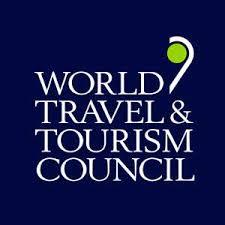
Closing speech: WTTC Global Summit in Dallas, President & CEO, David Scowsill,
In closing the WTTC Global Summit in Dallas, President & CEO, David Scowsill, called on the Travel & Tourism sector to show the leadership required to keep people travelling despite concerns over security and the movement of refugees.
“The boundaries which we are trying to break become the borders that others are trying to build,” he said. “Let’s go further than we have ever gone before in championing and resolving the big issues of our age. Let’s claim the leadership position.” Travel & Tourism accounts for almost 10% of world GDP and one in eleven of all jobs on the planet, making it a powerful contributor to the global economy. “I see a sector that is growing at a higher rate than world GDP. One that is creating jobs. And one that is committed to the stewardship of the world’s natural resources. In an uncertain world driven by conflict, fear, climate change and resource scarcity, it is our sector to which governments can look for economic certainty”, he said.
“Which other industry can be invited into the world’s great powerhouses and provide sought after advice in the fields of sustainability, innovation, job creation, and economic generation?” he asked.” “It is now the role of world leaders to step up to harness the opportunities of Travel & Tourism and for the leaders of our sector to embrace that opportunity.” “The key issue we have addressed is the implication for freedom to travel of the twin threats of terrorism and the movement displaced peoples. Global problems require a global response. That is why we welcome the challenge laid down by the US Government for the public and the private sectors to work together, to improve radically inter-agency cooperation and the sharing of information across the world.”
The WTTC Global Summit had seen contributions from over 60 people over the course of two days as Travel & Tourism leaders discussed the pressing issues affecting the sector today – notably safety & security, sustainability, and the influence of recent geopolitical shifts and technological developments. The 2016 WTTC Global Summit was hosted by Dallas CVB, with invaluable support from Brand USA, Dallas Fort Worth International Airport, Mexico Tourism Board, Sabre, Texas One, TravelTexas.com, United Airlines and the US Travel Association. Next year, the WTTC Global Summit will take place from 26-27 April 2017 in Bangkok, hosted by the Ministry of Tourism and Sports of Thailand and endorsed by the Royal Thai Government.

Don’t close borders in response to terrorism
“Don’t close borders in response to terrorism”, says WTTC CEO “Closing borders and jeopardising the freedom to travel is not the answer to the current security concerns.
World leaders need to stand together and act now, with the support of the Travel & Tourism sector.” That was the message from David Scowsill, President & CEO, World Travel & Tourism Council (WTTC) at the start of the organisation’s annual Global Summit, in Dallas, Texas.
Scowsill told the assembled private and public sector delegates that: “The combination of global terrorism and an international refugee crisis is creating an unprecedented threat, but closing our borders and jeopardising our freedom to travel is not the solution.
We have to prevent an overreaction from governments.” “We live in an ever-connected world, brought closer by technology, multi-platform media, binding trade agreements and the sheer speed of travel. That same connectivity sees us witnessing the migration of peoples, on a scale not seen for decades. Navigating our way through and beyond the complexities of mass migration, embracing the possibilities while acknowledging the concerns, will be the urgent task of our global leaders now and in the future”, he said. In calling on world leaders to “prevent an overreaction from governments” he said the critical question is to understand “how can we keep our borders safe, while keeping those same borders open to business travellers and tourists?”
He reminded delegates of the impact of the US border tightening after the 11 September 2001 attacks, which led to a ‘lost decade’ of tourism income that cost the United States some $600 billion. WTTC advocates improving international intelligence and security agency cooperation, better use of technology, and better communication as ways of combatting the problem. Such action will take global agreements and a commitment to sharing data – something which can only happen with concerted international effort. “World leaders need to stand up together and to act now. And it is our role as Travel & Tourism leaders to make that happen”, he said. The economic contribution of Travel & Tourism is clear. Globally, the Travel & Tourism sector contributes $7.2 trillion annually, almost 10% of the world’s GDP, and supports one in eleven of all jobs on the planet, an exceptionally resilient performance despite many challenges. Scowsill also highlighted how the sector is force for good in the world: “Travel and Tourism brings people together. It puts a smile on people’s faces. It alleviates poverty. It provides employment across all levels of society, and in some of the most remote places on earth. It broadens horizons and breaks boundaries.”
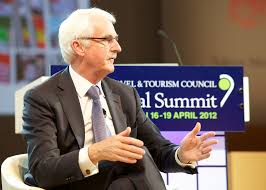
Gerald Lawless new Chairman of the World Travel & Tourism Council
The World Travel & Tourism Council (WTTC) is pleased to announce the election of Gerald Lawless as WTTC Chairman at the Councils Annual General Meeting on 6 April 2016 in Dallas, Texas.
Mr. Lawless, former Group Chief Executive Officer of Jumeirah Group and now Head of Tourism and Hospitality at Dubai Holding, is a leading figure in the world of tourism and hospitality. In his 18 years as CEO of Jumeirah Group, he spearheaded the growth of the hotel chain to one of the best-known luxury hospitality brands in the world, expanding the companys portfolio to 22 hotels in 11 destinations and establishing Burj Al Arab Jumeirah as the most luxurious hotel in the world.
Gerald has been a Member of the World Travel & Tourism Council since 2005, sitting on the Executive Committee since 2008, and as Vice Chairman since 2012.
Mr. Lawless will take over from Dr. Michael Frenzel, Chairman Emeritus TUI AG. The WTTC Chairman is elected for a term of two years.
Outgoing Chairman, Dr. Michael Frenzel said I am delighted to welcome Gerald as WTTC Chairman. Gerald has been an active Member of WTTC, responsible for bringing the Global Summit to Dubai in 2008 and serving on the Executive Committee and as a Vice Chairman. His commitment to WTTCs Mission will be invaluable, as the organization continues to drive recognition of Travel & Tourisms social and economic impact amongst governments around the world.
Gerald Lawless, Chairman, WTTC, said: Over the past 11 years, I have been privileged to be a member of the World Travel & Tourism Council. I believe strongly in the mission of the organization, which advocates the benefits of Travel & Tourism, not only to the global economy but also to society in general. Travel & Tourism is and will remain a force for good. It deserves a lot more recognition from governments worldwide.
WTTCs latest data shows that the sector accounts for 9.8% of the worlds GDP, contributing over USD$ 7.2 trillion. Last year Travel & Tourism added 7.2 million jobs to the global economy, supporting a total of 284 million jobs around the world.

Zimbabwe Tourism Minister Mzembi on a U. S. Diplomatic Charm Offensive
Relations between the United States and Following Zimbabwe nomination and the Southern African Development Community’s endorsement of the candidature of Dr Walter Mzembi to the position of Secretary General of the United Nations World Tourism Organization (UNWTO) which falls vacant in the last quarter of 2017, the mercurial Engineer, has is in the United States of America on a diplomatic charm offensive where he is reported to be making significant inroads into the Washington power matrix.
On Monday 4 April 2016, accompanied by the Zimbabwe Ambassador to Washington DC Amon Mutembwa and Senior Officials, he paid a courtesy call on the US State Department where he met Todd Haskell, Deputy Assistant Secretary of State for African Affairs and other Senior Officials in the Department.
According to the programme seen by this paper Mzembi later on addressed a highly subscribed Corporate Council on Africa (CCA) meeting on “Destination Africa: The Future of African Tourism”. As guest speaker he met a conglomerate of US private sector, business and public policy experts on the tourism sector.
Corporate Council on Africa, a Washington Think Tank brings together public and private sectors in the USA and seeks to promote business and investment between the United States and Africa. CCA is the premier American organization devoted to US-Africa business relations and includes as its members, more than 180 companies, which represent nearly 85 percent of total US private and public sector investments in Africa. CCA’s members range from America’s smallest to the largest corporations. It represents a diverse pool of industries from Africa’s most promising sectors, including agribusiness, capacity building, energy, finance, health, ICT, infrastructure and security. The Corporate Council on Africa is a key resource mobiliser for conducting successful business in Africa. It works closely with governments, multilateral groups and businesses to improve Africa’s trade and investment climate and to raise the profile of Africa in the U.S. business community.
Most importantly, recently, CCA acquired the Africa Travel Association (ATA), a major organization that deals with promotion of tourism relationships between Africa and US. Mzembi is a three-time past President of the then New York based Association. The CCA President and Chief Executive, Mr Stephen Hayes is understood to be consulting Mzembi on the future structure of ATA under its new CCA configuration. According to the source close to the deliberations, Mzembi impressed the CCA capacity audience with several companies having offered to work with him in exploiting opportunities in Africa. He spoke convincingly on the need to configure CCA-ATA in a manner that responds to the tourism growth trajectory and aspirations of African countries. Minister suggested the consummation of a structure that dovetails into African Union Agenda 2063 with a recommendation on the devolution of emerging CCA-ATA structure into an African Secretariat based in Addis Ababa, Ethiopia. Currently, Africa’s global tourism market share oscillates from three to five percent, and Mzembi shared his vision for a double digit market share for African tourism by the year 2030 on the back of a cocktail of proposals he has advanced to the AU in his capacity as the UNWTO Regional Commission for Africa Chairperson.
Later on in the week, Mzembi headed for Dallas Texas where he is a participant and an invited guest to the WTTC 16th Global Summit. He participated in a Ministerial Dialogue with other Ministers around the globe and Chief Executive Officers of leading hospitality brands and other service providers. The Minister will further participate in Public and Private Business Policy discussions from an international, regional and national perspective. He is expected to address the Zimbabwe Diaspora community in Dallas Texas who have constituted themselves into a Diaspora Chamber of Commerce and have expressed interest to promote Zimbabwe as Honourary Consuls General. Later, the Minister will round off his visit in New York where he will address a meeting of diplomats accredited to the United Nations where he will share his vision on tourism development.
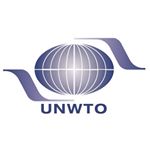
UNWTO – a decade building capacity in tourism policy in Asia/Pacific
Under the title ‘Human Capital Development in Tourism’, the UNWTO Asia/Pacific Executive Training Programme on Tourism Policy and Strategy has gathered policy makers and tourism executives in Seoul, Republic of Korea, to enhance skills and understanding on the latest trends in tourism management. The initiative, organized by UNWTO and sponsored by the Ministry of Culture, Sports and Tourism of the Republic of Korea, has reached a decade in this last edition, as the first Training Programme on Tourism Policy and Strategy in the Asia/Pacific region launched in 2006.
Group discussions, case studies and a series of lectures integrated the 4-day training programme aimed at building skills for public sector executives in tourism policy. The 52 participants coming from 21 different countries in Asia and the Pacific also had the opportunity to share their experiences and best practices in fields such as tourism strategic planning and implementation.
The topic for this year programme, ‘Human Capital Development in Tourism’, responds to the growing need of destinations in Asia and in the Pacific to enhance the quality of services, develop and retain human resources and improve the skills of tourism professionals as the sector gains increased relevance in the region.
“UNWTO has a strong commitment to talent development and capacity building. This training programme is probably one of the best examples of the efforts of the Organization in this field”, said UNWTO Secretary General, Taleb Rifai, opening the event.
“This is also a perfect example of how countries such as the Republic of Korea can contribute to tourism development. We are very thankful to the Ministry of Culture, Sports and Tourism for the longstanding support provided to this programme. We have run this programme for a decade now, and the support that the Republic of Korea has given us has contributed greatly to its success, making a real difference to the many countries from around the world that throughout this decade have joined the programme” he added.
